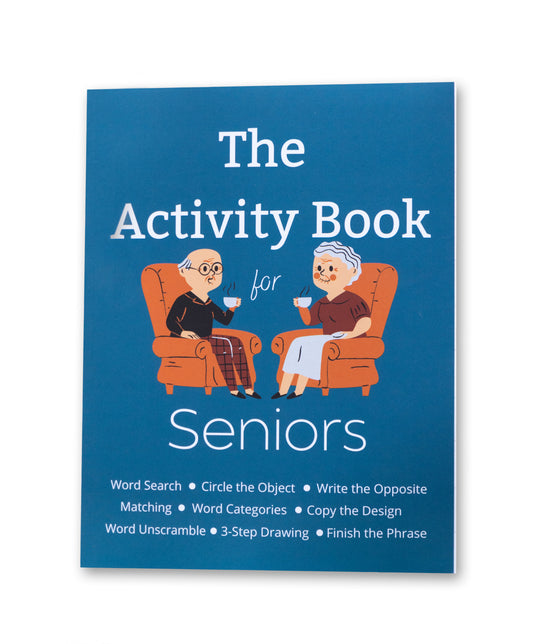
Providing Help With Everyday Tasks When Thinking Skills Decline
Share
As loved ones age and need more help, it can be tricky to figure out how to provide them that help. A parent may not welcome their adult child’s involvement in managing certain aspects of their life, such as finances, or medication management. Taking special care in how you present the help that is needed can make the difference in whether the help is accepted or not.
Most people suffering from an initial decline in mental abilities are aware of their decline and it is often painful, triggering feelings of anxiety and depression. Some cope with the decline through denial, a coping mechanism allowing for time to process their new reality. Keep in mind the extreme difficulty in being aware of one’s own memory loss and the stress that brings. When a person is in denial that their thinking skills are declining, they're likely to refuse help.
When thinking stills start to decline, complex tasks, like cleaning, driving, or managing finances, become hard. More mistakes are made or they put off doing certain tasks because they've become too difficult. Someone that used to keep their house tidy might now keep it messy. There might be a collection of expired food in the fridge that never makes its way to the trash. You might notice more errors with their medication routine. These declines lead to a need for some help from others to maintain their success doing their daily tasks and to keep them safe.

Is It Appropriate to Address Memory Loss?
It is generally good to address the truth of the memory loss with the person in a supportive and gentle manner so that they can implement lifestyle changes to help themselves if they choose to, but frequently reminding them of their memory loss can be cruel. They may have forgotten they have memory loss, and frequently reminding them can be painful to hear.
Giving Only the Help That is Needed
When it comes to providing assistance for tasks that have become difficult, aim to provide the least amount of help they need in order for them to maintain their independence. If they are 90% successful at a task, it is good for the caregiver to do just the 10% that is needed rather than doing it all for them. Provide help in a subtle manner, so they don't feel inferior.
- If they are paying their own bills still and have the desire to continue to do so, but have had a few late bills, consider keeping the part of their routine that is working and only changing the part that isn't. You might write the due date in large print on the bill and place the unpaid bills with clearly written due dates in an obvious and consistent spot, such as in a noticeable basket on the counter. Monitor and tweak the routine to ensure their success.
- If they struggle with reaching safely into their closet and drawers to gather the clothes they need to get dressed, giving the minimal amount of help needed might be that you set the clothing out for them ahead of time.
- Hiring someone to clean weekly can often be a benefit, as most people welcome such help.
- Putting an automatic pill dispenser or pill alarm system in place can help them get the right medicines at the right times.
Subtle Help
Let’s turn our attention to “subtle help”. This is a selfless way to provide help to someone, as you set them up for success without drawing attention to the fact that you helped them or that they needed the help. Doing so allows them to maintain their dignity.
- With the bill paying scenario, you might need to have an initial conversation with your loved one, so that they agree to your involvement. If they object, hear them out and be flexible with how you provide the help. People are often more on board with implementing something that they had a say in. Setting them up to be successful at a task, such as implementing an organized system to their bill paying routine, helps them in a subtle way.
- With the dressing scenario, subtle help involves avoiding drawing attention to the fact that you are helping them. Aim to set a routine in place of setting their clothes out for them in the same spot each day.
Wouldn't it Be Better to Just Do It For Them?
Providing the least amount of help they need in a subtle manner requires some creativity, thoughtfulness, and selflessness as you’re putting your loved one’s needs above your own. This helps them manage their decline better by maintaining their independence where they can. On the flip side, if you were to just do the jobs they struggle with for them, it takes away some of their independence and purpose. Their world can shrink as more and more things are taken away. Allowing them to continue to do as much as they can on their own, keeping their safety in mind, helps them live life more fully.






